I’m a Podiatrist, and I’d Never Wear These 8 Pairs of Shoes in the Winter
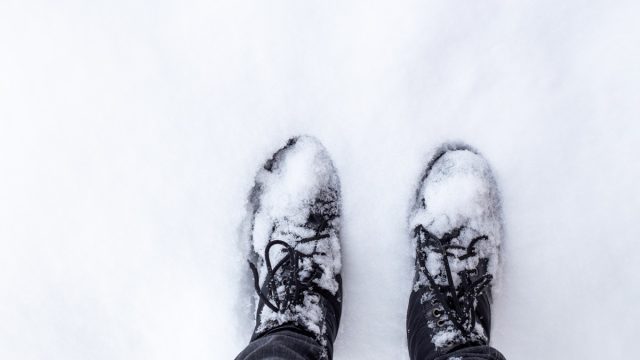
If you’re working on switching out your wardrobe for the winter season, you may be most worried about coats and sweaters to keep you warm. But Mauricio Garcia, MD, orthopedic surgeon and senior project manager for Hyper Arch Motion shoes, tells Best Life that proper footwear is just as “crucial” for the colder season.
As Garcia explains, winter elements such as low temperatures, moisture, and slippery surfaces can create a plethora of problems that range from “mild discomfort to serious injuries” if your feet are not properly protected.
With this in mind, we talked to both Garcia and Cameron Bennet, podiatrist and director of My Family Podiatry, to find out what the experts themselves will be avoiding as we head into the end of the year. Read on to discover the eight pairs of shoes they say they would never wear in the winter.
RELATED: 5 Types of Socks You Should Own as You Get Older, Podiatrists Say.
1
Loafers
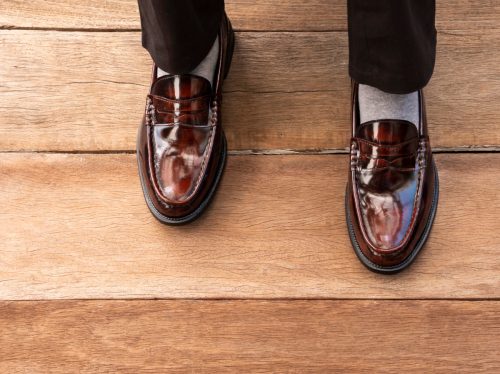
Loafers have become quite a fashionable choice for fall looks. But Garcia says this is one pair of shoes he would definitely pack away when it comes time for winter.
“Although stylish and comfortable, loafers are often designed with thin soles and offer minimal insulation on days that are cold and damp,” he explains.
2
Thin canvas sneakers
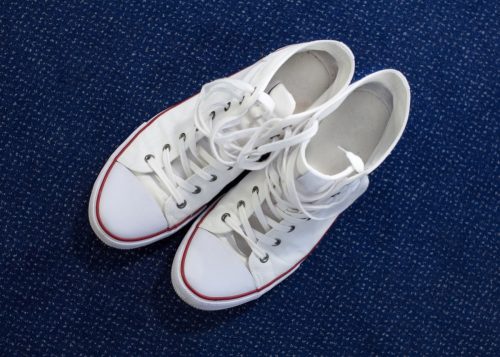
Those thin canvas sneakers may feel comfortable, but no matter how thick your socks are, they are going to do nothing for you on those cold and damp days.
“Thin canvas sneakers tend to lack waterproofing, and coupled with the fabric’s lack of warmth, when worn during the winter months, feet can get wet and chilled very quickly,” Garcia says.
3
Last year’s slippers
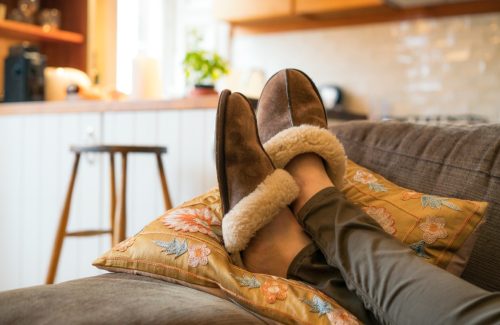
The shoes you wear inside your home during the winter are just as important as the ones you go outside in. So, think twice before you slide your feet into last year’s slippers, Bennet warns.
“Typically people do not wear socks when in our slippers. This allows a build-up of dead skin, sweat, bacteria, and potentially fungus to accumulate inside the slippers,” he explains, adding that this can lead to infection.
RELATED: 5 “Comfortable” Shoes That Are Actually Bad for Your Feet, Podiatrists Say.
4
Open shoes
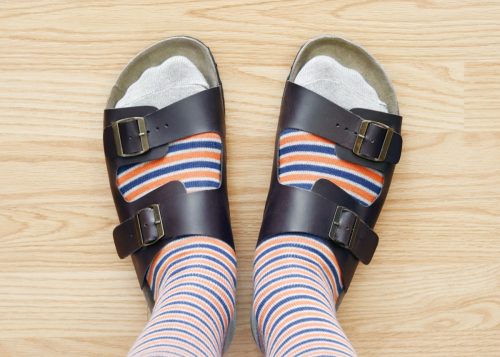
If it gets even the slightest bit cold where you are, “avoiding open shoes probably goes without saying,” Bennet says. But you’d be surprised how many people still try wearing flip-flops, slides, and sandals during the winter—with or without socks.
“Exposing your toes and extremities to the elements can lead to issues including chilblains or even more serious, frostbite,” he warns.
5
Flat ballet shoes
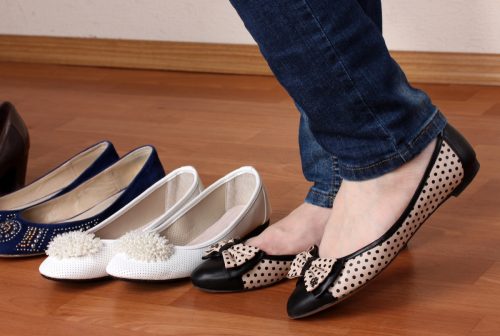
According to Bennet, you should also avoid ballet flats in winter. “These shoes tend to lack any stability through the arch and do not support the foot,” he says. “The smooth soles also increase the risk of slipping on wet or icy surfaces.”
6
High heels
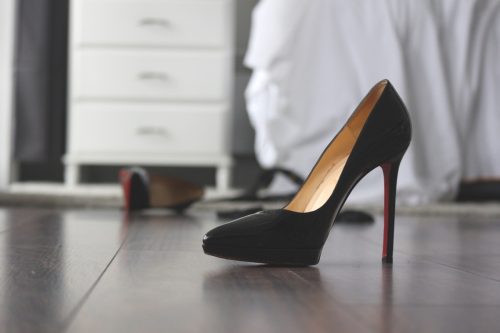
High heels are one type of shoe that Bennet wouldn’t advise people to wear at any point in the year.
“For the same reasons I wouldn’t recommend stilettos or heels in the warmer months, I would discourage them in the winter months even more,” he says. One of the most concerning factors for the winter is that these shoes tend to be “largely open, exposing your feet and toes to the elements,” according to Bennet.
Garcia also cautions about the “lack of traction and stability” with high heels, which can become even more of a risk during the winter. “The uneven weight distribution and small contact surfaces can lead to slips, falls, ankle sprains, or other serious injuries,” he adds.
RELATED: I’m a Podiatrist and I’d Never Wear These 3 Pairs of Shoes.
7
Mesh runners
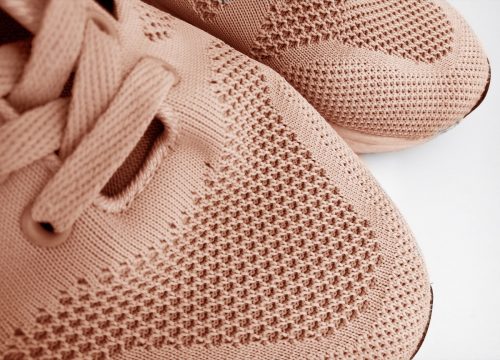
You should pay close attention to what footwear you’re wearing to work out in the winter as well. If you have runners made of mesh material, you may want to wait until it’s warm again to use them, according to Bennet.
“Most runners and athletic shoes are designed with a mesh upper to cover the top of the foot and toes. This is to allow air flow when exercising,” he explains. “However, it can also allow the cold and wet to get inside the shoes and onto the feet.”
8
Worn-out shoes
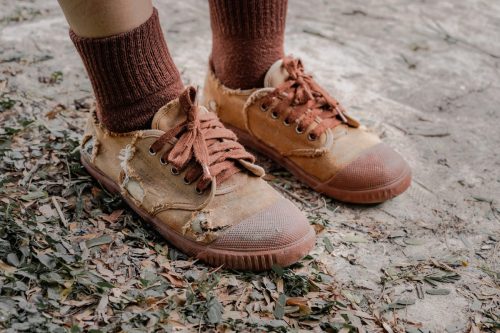
Buying new footwear can feel frivolous to some people. But those old shoes should not be carrying you through the winter season, Garcia warns: “Worn-out or damaged shoes can’t provide the necessary traction to keep you stable on icy or slippery surfaces and could lead to injury in a fall.”
For more wellness advice, sign up for our daily newsletter.